

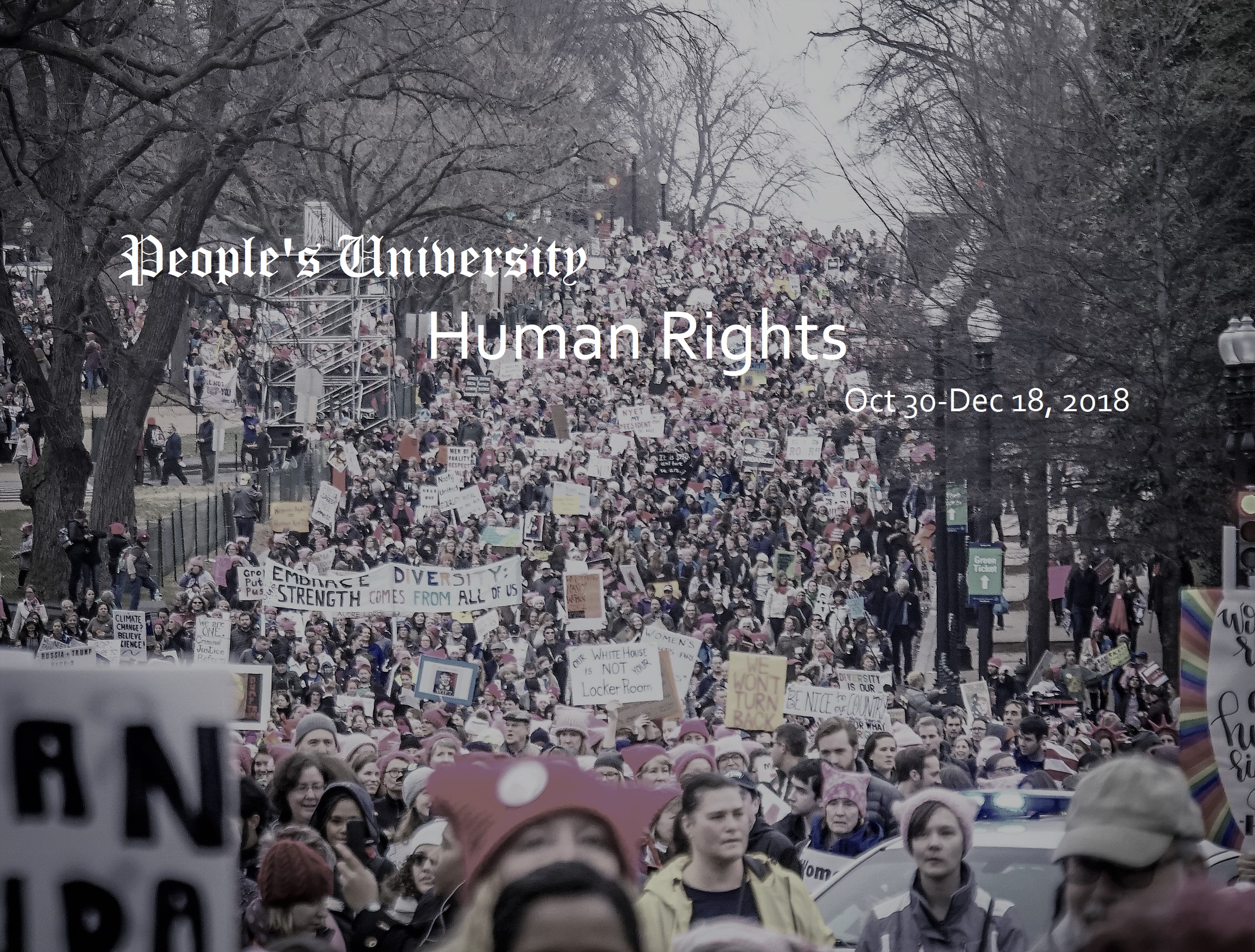
In order to explore the sources, achievements, extensions, deviations, critiques, and challenges of what we collectively call "Human Rights," the Ohio County Public Library, in partnership with the Wheeling Academy of Law and Science (WALS) Foundation, has invited a diverse array of scholars from the fields of philosophy, history, sociology, law, science, technology, and communications to present different perspectives on the development of Human Rights from the ancient to the modern worlds, while also comparing American and international views. This new People's University series will conclude with a look at the challenge of sentient non-humans, including Animal Rights and Artificial Intelligence. Classes will meet at 7 pm in the library's auditorium beginning Tuesday, October 30.
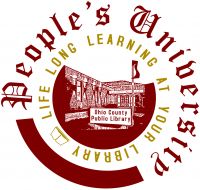

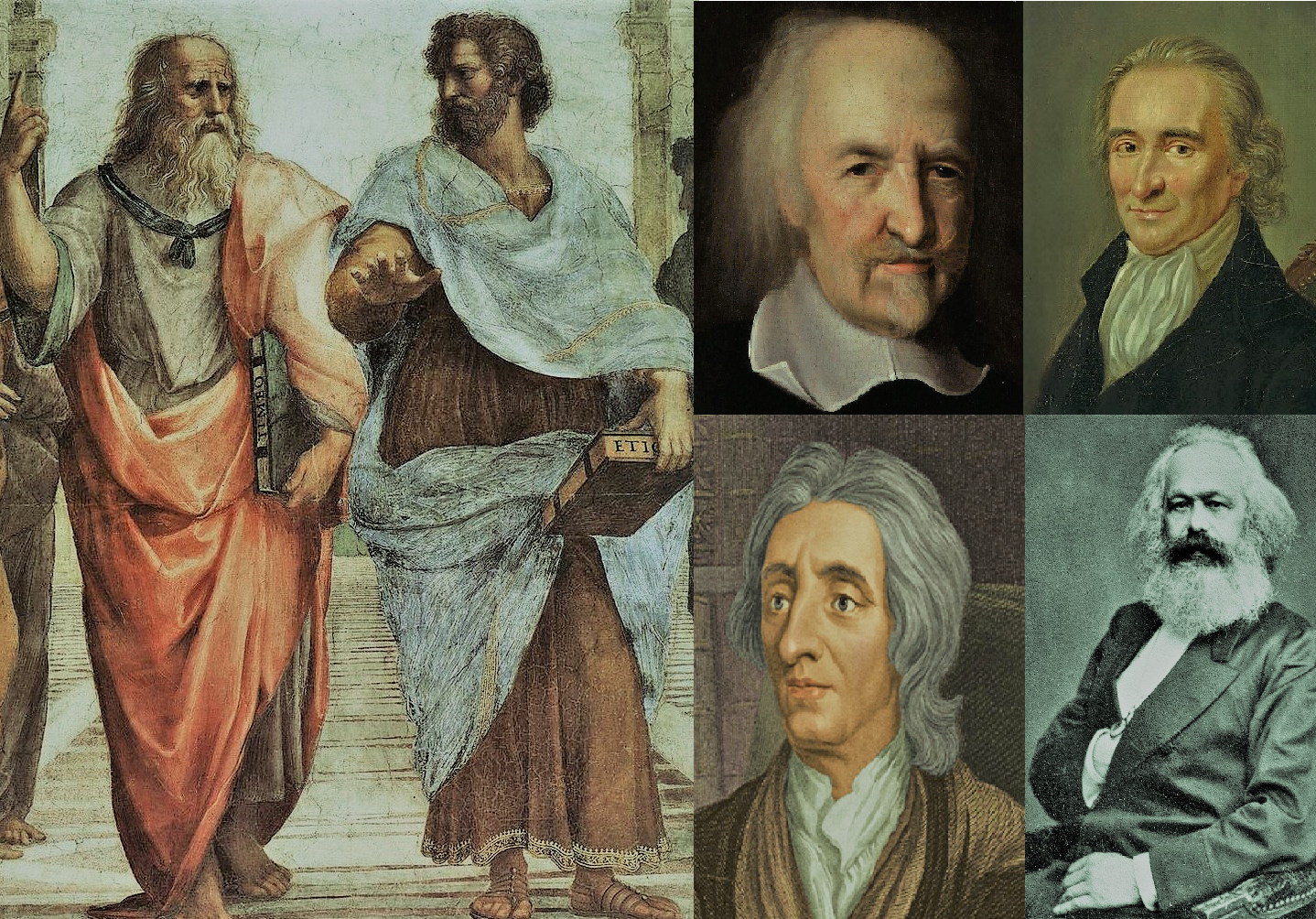
The concept of human rights as we commonly think of it develops out of a long tradition of Western philosophical thought and does not come without inherent tensions and, perhaps, outright contradictions. We will explore the philosophical sources of the strains of political thought that, together, produce our shared idea of human rights - as well as many of the consequences that could or have followed from them.
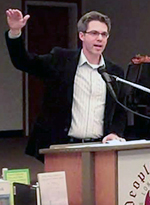 Instructor: Dr. Darin McGinnis is associate professor of philosophy at Wheeling Jesuit University. His past work has dealt with the possibilities of understanding diverse theories of historical interpretation from the 19th and 20th Centuries. He presents and publishes on topics including the sources of social critique as well as figures such as Friedrich Nietzsche, Paul Ricoeur, and Pierre Klossowski.
Instructor: Dr. Darin McGinnis is associate professor of philosophy at Wheeling Jesuit University. His past work has dealt with the possibilities of understanding diverse theories of historical interpretation from the 19th and 20th Centuries. He presents and publishes on topics including the sources of social critique as well as figures such as Friedrich Nietzsche, Paul Ricoeur, and Pierre Klossowski.
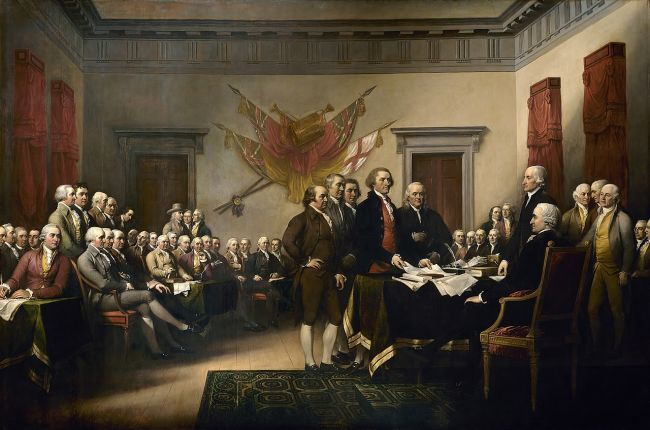
In the eighteenth century, visions of universal freedom and calls for human rights reverberated throughout the Atlantic World, as people, texts, and ideas traveled. In this talk, we will explore how new ideas of natural rights and equal rights associated with the Enlightenment were formulated, shared, and spread. We will examine what it meant for the American and French revolutionaries to identify and codify human rights, and consider how their claims about the universal nature of human rights remain with us today.
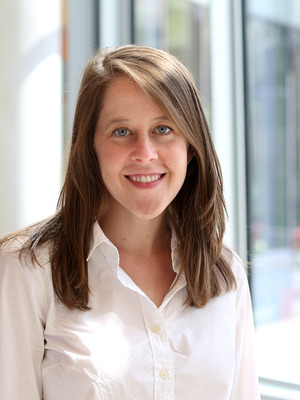 Instructor: Dr. Elizabeth Andrews Bond is assistant professor of history at Ohio State University. She publishes and teaches on the cultural history of the Enlightenment, the French Revolution, and the history of media from the fifteenth century to the present. Her current book project explores how new media in the eighteenth century made it possible for readers to envision a society where change was possible and their voices mattered.
Instructor: Dr. Elizabeth Andrews Bond is assistant professor of history at Ohio State University. She publishes and teaches on the cultural history of the Enlightenment, the French Revolution, and the history of media from the fifteenth century to the present. Her current book project explores how new media in the eighteenth century made it possible for readers to envision a society where change was possible and their voices mattered.
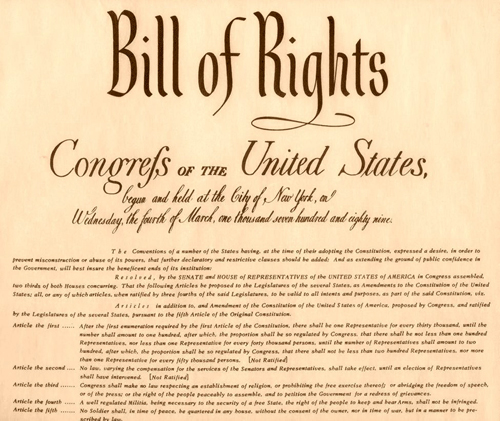 The U.S. Constitution, the oldest written constitution still in effect today, established the U.S. government as one of limited powers and set forth significant human rights that further curb that government. Those achievements, while radical for their day, were themselves incomplete, imperfect, and inadequate to protect all people of this new nation. We will explore the virtues and shortcomings of this document from a values perspective to shed light on inherent tensions that continue to unfold to this very day.
The U.S. Constitution, the oldest written constitution still in effect today, established the U.S. government as one of limited powers and set forth significant human rights that further curb that government. Those achievements, while radical for their day, were themselves incomplete, imperfect, and inadequate to protect all people of this new nation. We will explore the virtues and shortcomings of this document from a values perspective to shed light on inherent tensions that continue to unfold to this very day.
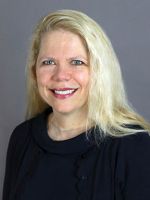 Instructor: Dr. Anne Marie Lofaso is the Arthur B. Hodges Professor of Law at West Virginia University College of Law, where she teaches Labor and Employment Law, Jurisprudence, and Comparative and International Work Law. Her scholarship focuses on human rights in the workplace. Dr. Lofaso is a research scholar for the NYU Law Center for Labor and an active research associate for the Oxford Human Rights Hub Blog for which she writes and coordinates additional blogs discussing U.S. human rights issues. She is a member of the West Virginia State Advisory Committee to the United States Commission on Civil Rights and formerly a Commissioner for the City of Morgantown Human Rights Commission.
Instructor: Dr. Anne Marie Lofaso is the Arthur B. Hodges Professor of Law at West Virginia University College of Law, where she teaches Labor and Employment Law, Jurisprudence, and Comparative and International Work Law. Her scholarship focuses on human rights in the workplace. Dr. Lofaso is a research scholar for the NYU Law Center for Labor and an active research associate for the Oxford Human Rights Hub Blog for which she writes and coordinates additional blogs discussing U.S. human rights issues. She is a member of the West Virginia State Advisory Committee to the United States Commission on Civil Rights and formerly a Commissioner for the City of Morgantown Human Rights Commission.
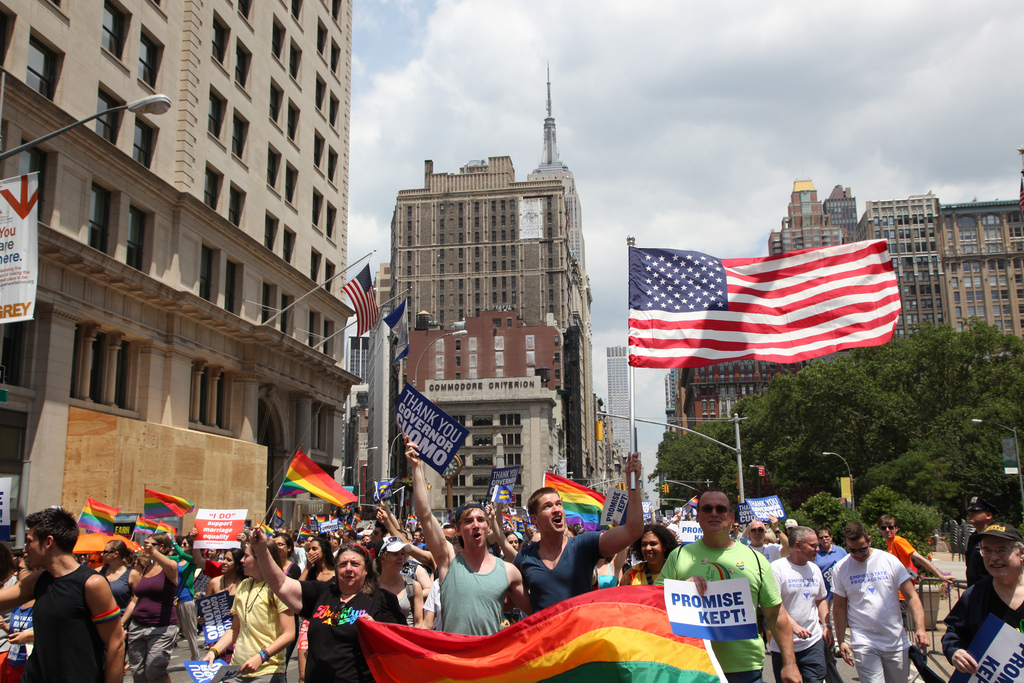 This session introduces participants to the social movement perspective on human rights. We explore three questions. In what ways have the working-class movement, the civil rights movement, the women's movement, and the LGBTQ movement in the US invoked the discourse on human rights? To what degree have these movements shaped the human rights culture of the US? To what extent has the human rights culture of the US assimilated insights from the Global South and the UN system?
This session introduces participants to the social movement perspective on human rights. We explore three questions. In what ways have the working-class movement, the civil rights movement, the women's movement, and the LGBTQ movement in the US invoked the discourse on human rights? To what degree have these movements shaped the human rights culture of the US? To what extent has the human rights culture of the US assimilated insights from the Global South and the UN system?
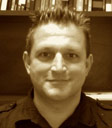 Instructor: Dr. Mark Frezzo is associate professor of sociology at the University of Mississippi. In The Sociology of Human Rights (Polity Press, 2014) and other publications, Frezzo explores theoretical and substantive issues in the areas of human rights, social movements, and development. His current research includes a book-in-progress, Cosmopolitanism and Social Science (Routledge 2019). He has taught a range of courses at both the undergraduate and graduate levels. He has served in leadership roles for the Science and Human Rights Coalition of the American Association for the Advancement of Science, the Human Rights Section of the American Sociological Association, and the Thematic Group on Human Rights and Global Justice of the International Sociological Association.
Instructor: Dr. Mark Frezzo is associate professor of sociology at the University of Mississippi. In The Sociology of Human Rights (Polity Press, 2014) and other publications, Frezzo explores theoretical and substantive issues in the areas of human rights, social movements, and development. His current research includes a book-in-progress, Cosmopolitanism and Social Science (Routledge 2019). He has taught a range of courses at both the undergraduate and graduate levels. He has served in leadership roles for the Science and Human Rights Coalition of the American Association for the Advancement of Science, the Human Rights Section of the American Sociological Association, and the Thematic Group on Human Rights and Global Justice of the International Sociological Association.
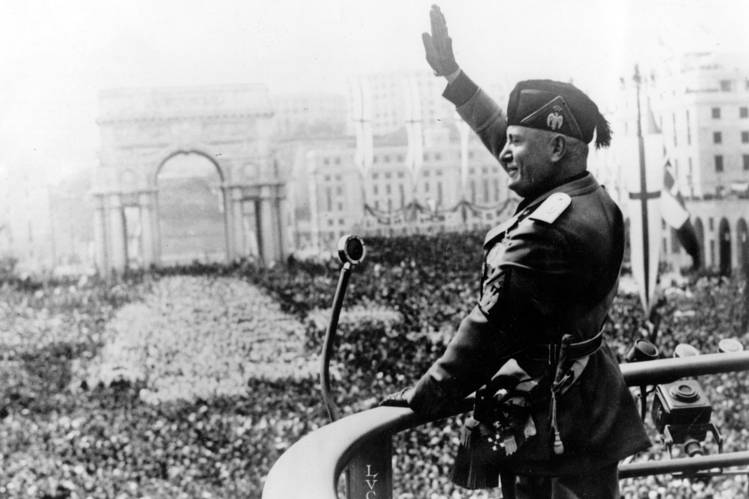 In the twentieth century, liberal democracy came under assault from revolutionary ideas of both the left and the right. Communism and fascism offered radically alternative conceptions of society and human rights, and posed existential threats to the political order that had developed in Europe since the French Revolution. We will explore the development and meaning of these two ideologies and critically dissect the related concept of totalitarianism. We will also apply this historical lens to present-day challenges to liberal democracy.
In the twentieth century, liberal democracy came under assault from revolutionary ideas of both the left and the right. Communism and fascism offered radically alternative conceptions of society and human rights, and posed existential threats to the political order that had developed in Europe since the French Revolution. We will explore the development and meaning of these two ideologies and critically dissect the related concept of totalitarianism. We will also apply this historical lens to present-day challenges to liberal democracy.
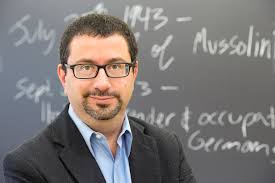 Instructor: Dr. Joshua Arthurs is Associate Professor of History at West Virginia University and a Fellow of the American Academy in Rome. He is a cultural and social historian of twentieth-century Italy and Europe, with a focus on fascism and the far right; everyday life in war and dictatorship; and the politics of memory. His publications include Excavating Modernity: The Roman Past in Fascist Italy (Cornell University Press, 2012) and the edited volume The Politics of Everyday Life in Fascist Italy: Outside the State? (Palgrave MacMillan, 2017).
Instructor: Dr. Joshua Arthurs is Associate Professor of History at West Virginia University and a Fellow of the American Academy in Rome. He is a cultural and social historian of twentieth-century Italy and Europe, with a focus on fascism and the far right; everyday life in war and dictatorship; and the politics of memory. His publications include Excavating Modernity: The Roman Past in Fascist Italy (Cornell University Press, 2012) and the edited volume The Politics of Everyday Life in Fascist Italy: Outside the State? (Palgrave MacMillan, 2017).
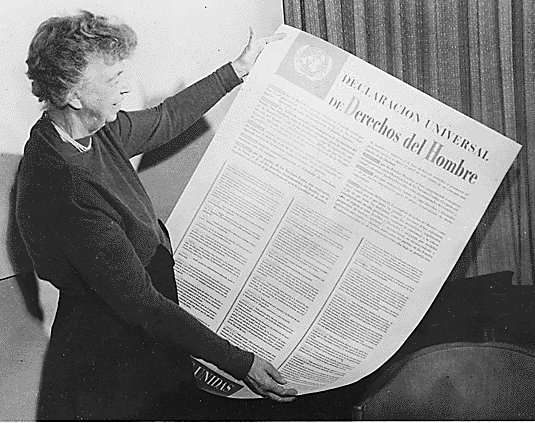 This presentation will explore the emergence of the modern human rights framework in the wake of WWII and the Holocaust, beginning with the adoption of the Universal Declaration of Human Rights by the UN General Assembly in 1948. We will also learn about other significant human rights agreements that have been made in the intervening years, including the Covenant on Economic, Cultural, and Social Rights and the Additional Protocols to the Geneva Conventions. Using health care as a case study, we will then delve into debates about exactly which rights all human beings possess and explore the challenges of realizing and enforcing human rights in the 21st century. We will end by discussing the challenges and opportunities of doing human rights work in the current political climate and whether the human rights framework can offer us a way to address some of the problems our country currently faces.
This presentation will explore the emergence of the modern human rights framework in the wake of WWII and the Holocaust, beginning with the adoption of the Universal Declaration of Human Rights by the UN General Assembly in 1948. We will also learn about other significant human rights agreements that have been made in the intervening years, including the Covenant on Economic, Cultural, and Social Rights and the Additional Protocols to the Geneva Conventions. Using health care as a case study, we will then delve into debates about exactly which rights all human beings possess and explore the challenges of realizing and enforcing human rights in the 21st century. We will end by discussing the challenges and opportunities of doing human rights work in the current political climate and whether the human rights framework can offer us a way to address some of the problems our country currently faces.
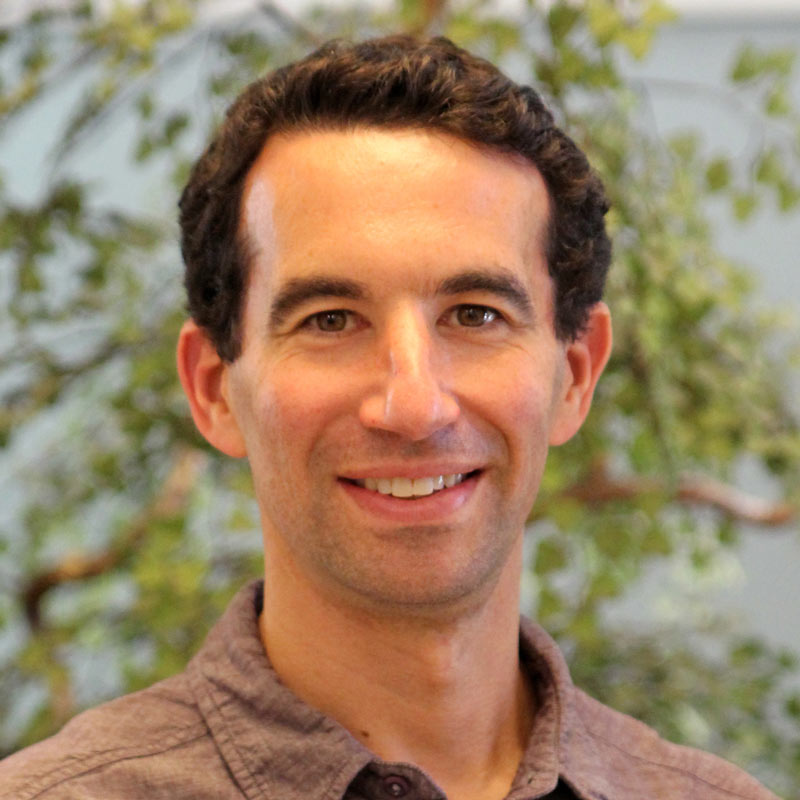 Instructor: Dr. Jay D. Aronson is the founder and director of the Center for Human Rights Science at Carnegie Mellon University. He is also Professor of Science, Technology, and Society in the History Department there. Aronson’s research and teaching focus on the interactions of science, technology, law, media, and human rights in a variety of contexts. He is currently engaged in a long-term project on the use of video evidence in human rights investigations. Previously, Aronson spent nearly a decade examining the ethical, political, and social dimensions of post-conflict and post-disaster identification of the missing and disappeared in collaboration with a team of anthropologists, bioethicists, and forensic scientists. His wrote Who Owns the Dead? The Science and Politics of Death at Ground Zero (Harvard University Press, 2016). Aronson received his Ph.D. in the History of Science and Technology from the University of Minnesota and was both a pre- and postdoctoral fellow at Harvard University’s John F. Kennedy School of Government.
Instructor: Dr. Jay D. Aronson is the founder and director of the Center for Human Rights Science at Carnegie Mellon University. He is also Professor of Science, Technology, and Society in the History Department there. Aronson’s research and teaching focus on the interactions of science, technology, law, media, and human rights in a variety of contexts. He is currently engaged in a long-term project on the use of video evidence in human rights investigations. Previously, Aronson spent nearly a decade examining the ethical, political, and social dimensions of post-conflict and post-disaster identification of the missing and disappeared in collaboration with a team of anthropologists, bioethicists, and forensic scientists. His wrote Who Owns the Dead? The Science and Politics of Death at Ground Zero (Harvard University Press, 2016). Aronson received his Ph.D. in the History of Science and Technology from the University of Minnesota and was both a pre- and postdoctoral fellow at Harvard University’s John F. Kennedy School of Government.
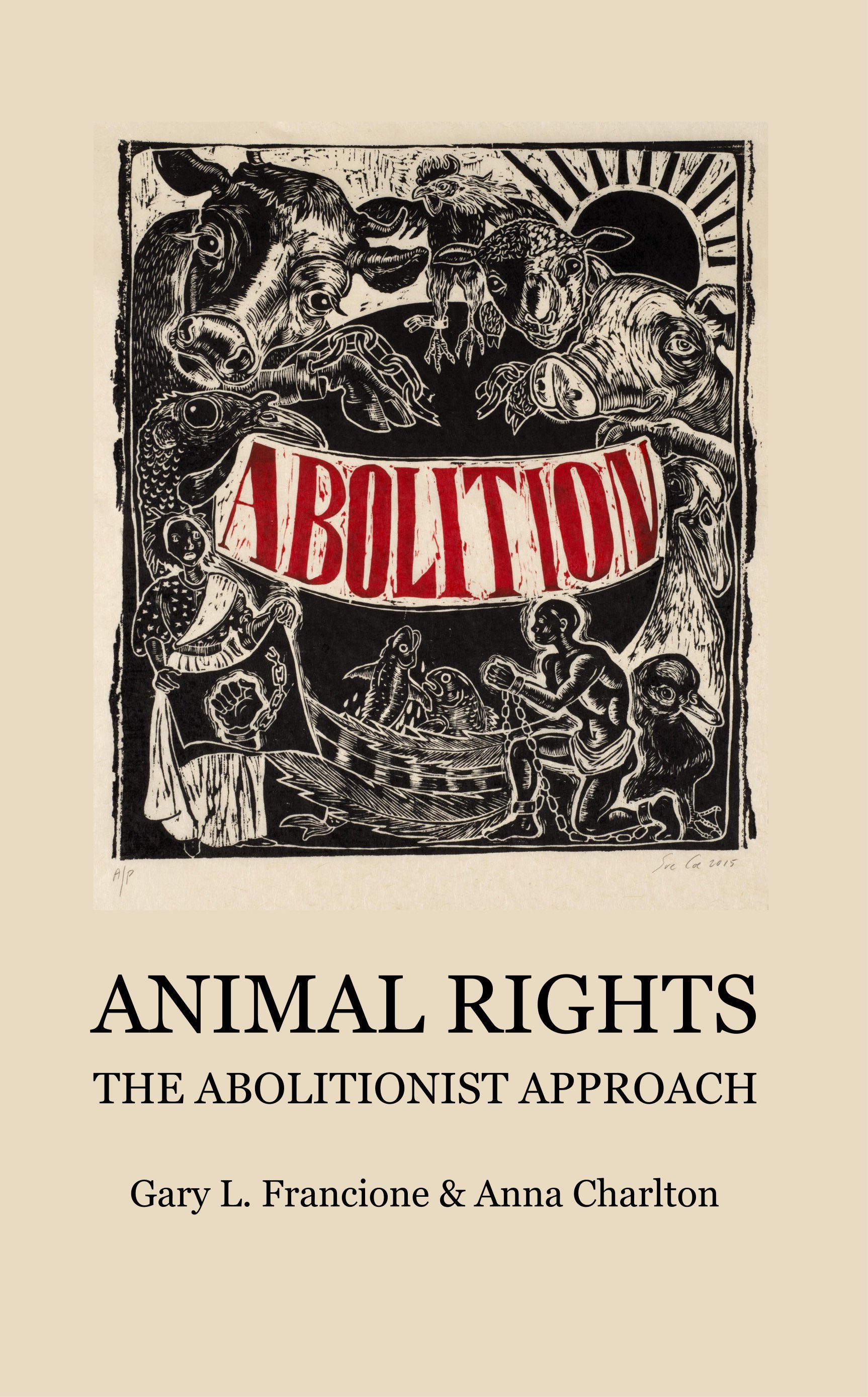 There is an enormous amount of confusion about the meaning of "animal rights." In this presentation, Professor Francione will discuss the concept of rights and how it applies in the context of our relationship with nonhuman animals. He will present an argument that, if we accept that animals have moral value and are not just things, we are committed to according animals one right--the right not to be used as property. Our recognition of this one right would have significant consequences in terms of our animal use but, in certain respects, these consequences flow from what most of us already claim to believe concerning the moral status of animals.
There is an enormous amount of confusion about the meaning of "animal rights." In this presentation, Professor Francione will discuss the concept of rights and how it applies in the context of our relationship with nonhuman animals. He will present an argument that, if we accept that animals have moral value and are not just things, we are committed to according animals one right--the right not to be used as property. Our recognition of this one right would have significant consequences in terms of our animal use but, in certain respects, these consequences flow from what most of us already claim to believe concerning the moral status of animals.
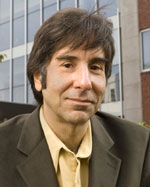 Instructor: Gary L. Francione is Board of Governors Distinguished Professor of Law and Nicholas deB. Katzenbach Scholar of Law and Philosophy at Rutgers University School of Law in New Jersey. He is also an Honorary Professor (Philosophy) at the University of East Anglia in Norwich (UK). Professor Francione pioneered the field of animal law in the 1980s and, in his 1995 book, Animals, Property, and the Law, he discussed how the status of animals as property means that the interests of animals will never be regarded as morally significant and the standard of animal welfare will always be very low. He has written a number of books and articles on animal rights, the problems with animal welfare, and veganism. He served as Law Clerk to Justice Sandra Day O'Connor of the United States Supreme Court. His most recent book, co-authored with Anna E. Charlton, is Animal Rights: The Abolitionist Approach (2015).
Instructor: Gary L. Francione is Board of Governors Distinguished Professor of Law and Nicholas deB. Katzenbach Scholar of Law and Philosophy at Rutgers University School of Law in New Jersey. He is also an Honorary Professor (Philosophy) at the University of East Anglia in Norwich (UK). Professor Francione pioneered the field of animal law in the 1980s and, in his 1995 book, Animals, Property, and the Law, he discussed how the status of animals as property means that the interests of animals will never be regarded as morally significant and the standard of animal welfare will always be very low. He has written a number of books and articles on animal rights, the problems with animal welfare, and veganism. He served as Law Clerk to Justice Sandra Day O'Connor of the United States Supreme Court. His most recent book, co-authored with Anna E. Charlton, is Animal Rights: The Abolitionist Approach (2015).
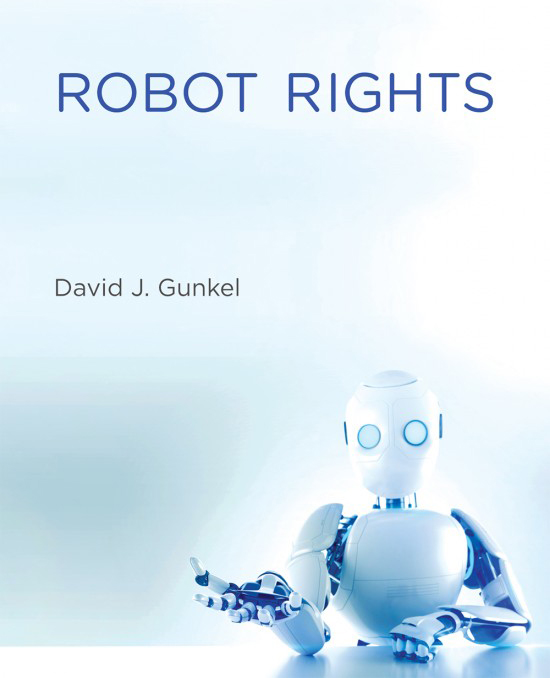 We are in the midst of a robot invasion, as devices of different configurations and capabilities slowly but surely take up increasingly important positions in everyday society—self-driving vehicles, decision-making systems, and social robots of various forms and functions. The question concerning the social status of these artifacts has been largely overlooked. We will consider what has been previously regarded as unthinkable: whether and to what extent robots and other artifacts of our own making can and should have any claim to moral and legal standing, including the philosophical distinction (developed by David Hume) between “is” and “ought” in order to evaluate and analyze the different arguments regarding the question of robot rights.
We are in the midst of a robot invasion, as devices of different configurations and capabilities slowly but surely take up increasingly important positions in everyday society—self-driving vehicles, decision-making systems, and social robots of various forms and functions. The question concerning the social status of these artifacts has been largely overlooked. We will consider what has been previously regarded as unthinkable: whether and to what extent robots and other artifacts of our own making can and should have any claim to moral and legal standing, including the philosophical distinction (developed by David Hume) between “is” and “ought” in order to evaluate and analyze the different arguments regarding the question of robot rights.
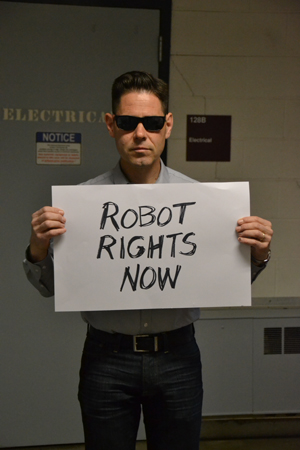
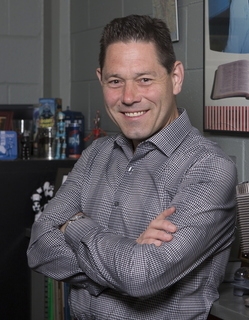 Instructor: Dr. David J. Gunkel is Distinguished Teaching Professor of Communication Technology at Northern Illinois University and the author of The Machine Question: Critical Perspectives on AI, Robots, and Of Remixology: Ethics and Aesthetics after Remix, both published by the MIT Press, and other books. Gunkel is an award-winning educator, scholar and author, specializing in the study of information and communication technology with a focus on ethics. Formally educated in philosophy and media studies, his teaching and research synthesize the hype of high-technology with the rigor and insight of contemporary critical analysis. He is the author of over 50 scholarly journal articles and book chapters, has written and published 7 influential books, lectured and delivered award-winning papers throughout North and South America and Europe, and is co-editor of the Indiana University Press series in Digital Game Studies. His teaching has been recognized with numerous awards, including NIU's Excellence in Undergraduate Teaching and the prestigious Presidential Teaching Professor. His new book, Robot Rights, is due Nov. 6 from The MIT Press.
Instructor: Dr. David J. Gunkel is Distinguished Teaching Professor of Communication Technology at Northern Illinois University and the author of The Machine Question: Critical Perspectives on AI, Robots, and Of Remixology: Ethics and Aesthetics after Remix, both published by the MIT Press, and other books. Gunkel is an award-winning educator, scholar and author, specializing in the study of information and communication technology with a focus on ethics. Formally educated in philosophy and media studies, his teaching and research synthesize the hype of high-technology with the rigor and insight of contemporary critical analysis. He is the author of over 50 scholarly journal articles and book chapters, has written and published 7 influential books, lectured and delivered award-winning papers throughout North and South America and Europe, and is co-editor of the Indiana University Press series in Digital Game Studies. His teaching has been recognized with numerous awards, including NIU's Excellence in Undergraduate Teaching and the prestigious Presidential Teaching Professor. His new book, Robot Rights, is due Nov. 6 from The MIT Press.
In keeping with the mission of public libraries as sanctuaries of free learning for all people, the Ohio County Public Library created The People’s University, a free program for adults who wish to continue their education in the liberal arts. The People’s University features courses—taught by experts in each subject—that enable patrons to pursue their goal of lifelong learning in classic subjects such as history, science, philosophy, and literature.
All People's University - Human Rights classes are free and open to the public. Patrons may attend as many classes as they wish. There are no tests or other requirements. An RSVP is requested but not required. Please email the library, call us at 304-232-0244, or visit the Reference Desk.
© Copyright 2024 Ohio County Public Library. All Rights Reserved. Website design by TSG. Powered by SmartSite.biz.